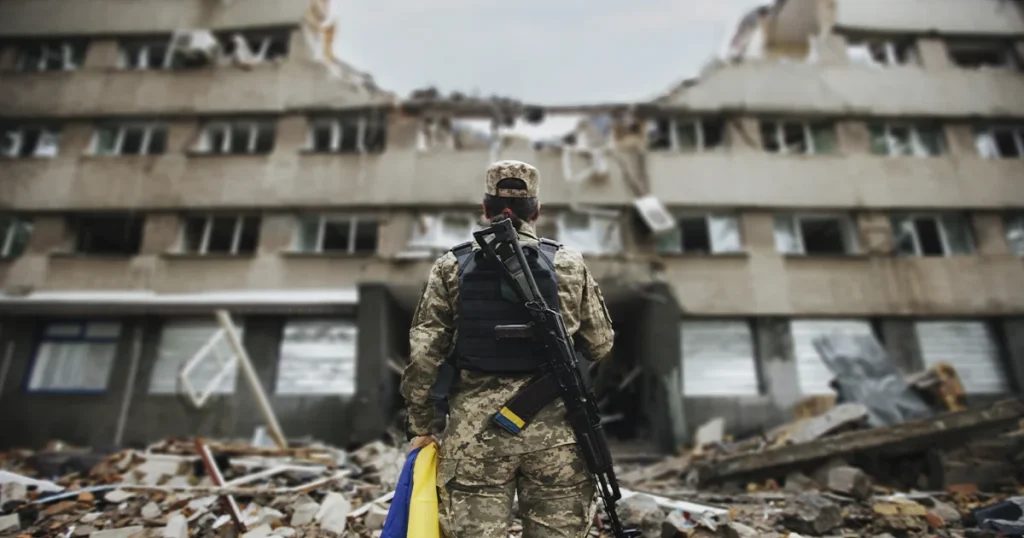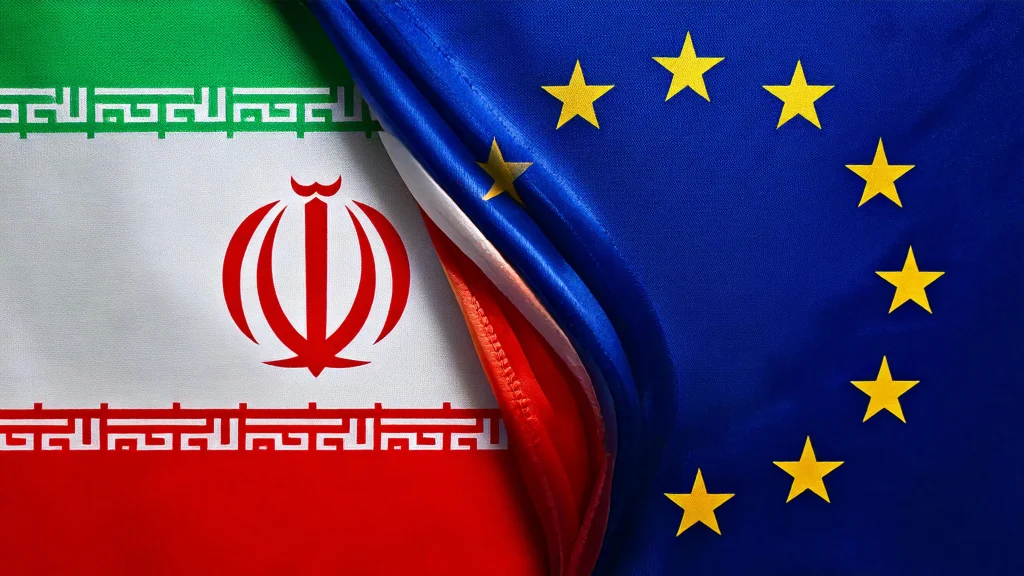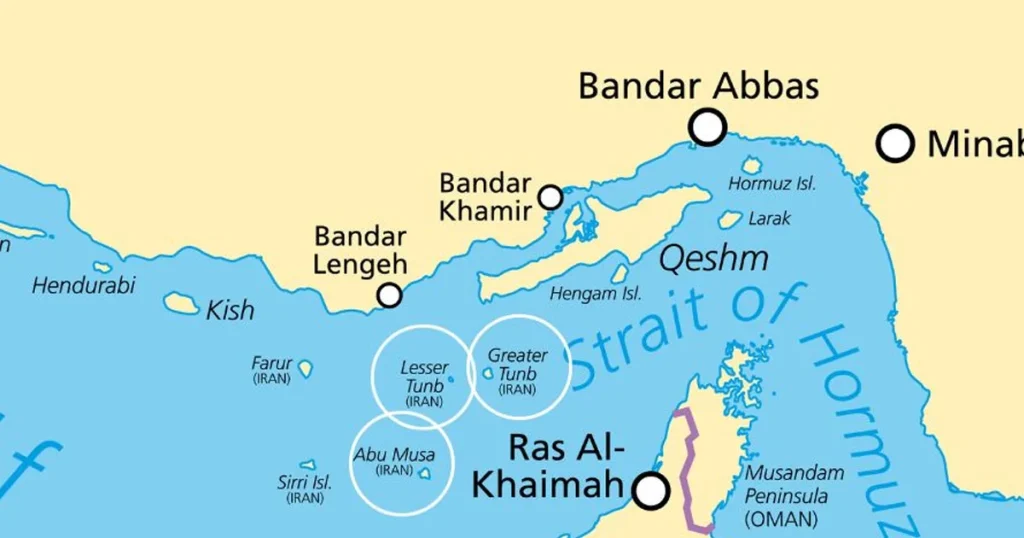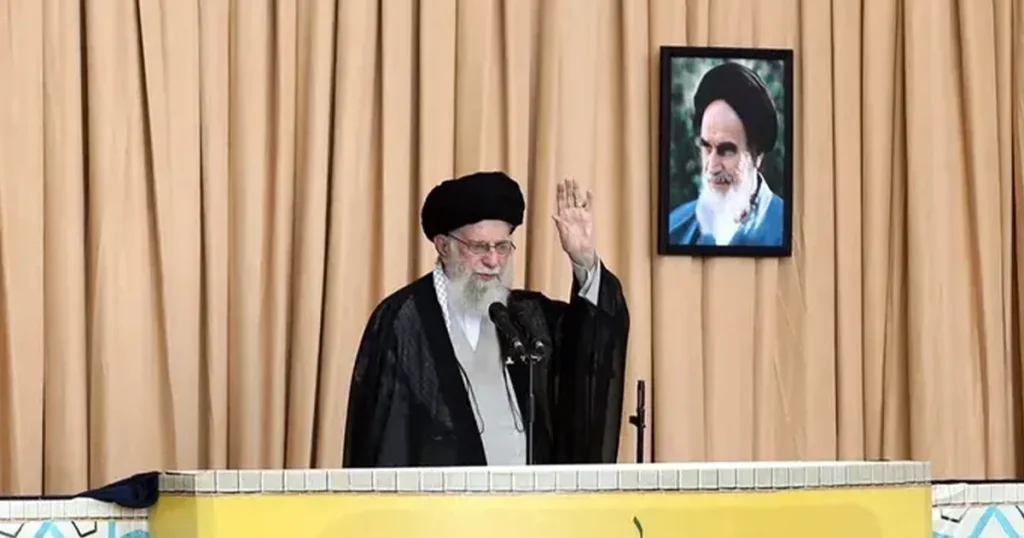Introduction
The Islamic Revolutionary Guard Corps (IRGC) of the Islamic Republic has a long history of involvement in regional and international conflicts, often acting as an arm of the regime’s military and ideological ambitions. One of the latest and most concerning developments is the IRGC’s support for Russia in its war of aggression against Ukraine. This support, primarily through the supply of armaments, including suicide drones, directly violates international law and underscores the need for the European Union (EU) to designate the IRGC as a terrorist organization. Such a designation is not only a moral imperative but also a strategic necessity for the security and economic interests of the EU.
The IRGC’s Support for Russia in Ukraine
Since the onset of Russia’s invasion of Ukraine in February 2022, there have been numerous reports and confirmations that the IRGC has been supplying Russia with critical military hardware, notably suicide drones. These drones, also known as loitering munitions, have been used to devastating effect on the battlefield, targeting Ukrainian military positions, infrastructure, and civilian areas. The Shahed-136 drones, produced by the Islamic Republic, have become infamous for their role in Russia’s military strategy, contributing to the humanitarian crisis and widespread destruction in Ukraine.

The IRGC’s provision of these drones not only enhances Russia’s offensive capabilities but also implicates the Islamic Republic in the violation of Ukraine’s sovereignty and territorial integrity. This action contravenes multiple international laws, including United Nations resolutions prohibiting the transfer of arms to conflict zones. By supplying drones to Russia, the IRGC is directly contributing to war crimes and the perpetration of atrocities against the Ukrainian people.
The IRGC is Not a Regular Military Force
It is crucial to understand that the IRGC is not a regular military force. Unlike conventional armed forces that exist to defend a nation’s territorial integrity, the IRGC was established with the explicit goal of protecting the Islamic Republic and exporting Ayatollah Khomeini’s revolutionary ideology. This ideological mission distinguishes the IRGC from Iran’s regular military, known as the Artesh, which functions similarly to other national armed forces around the world.
The IRGC operates independently of the Artesh and is deeply embedded in the political, economic, and social fabric of Iran. It engages in a wide range of malign activities, including international terrorism, suppression of internal and external dissent, and support for proxy groups in the Middle East. The IRGC’s primary allegiance is to the ideological principles of the Islamic Republic, rather than to the nation’s sovereignty or its people. This unique nature and purpose of the IRGC disqualifies it from being considered a legitimate part of Iran’s armed forces.
Violations of International Law
The IRGC’s involvement in arming Russia during its aggressive war against Ukraine is a blatant violation of international law. This includes the breach of the United Nations Charter, which prohibits acts of aggression against sovereign states. Furthermore, the transfer of drones and other military equipment to a nation actively engaged in an unprovoked invasion undermines the principles of international peace and security.
Additionally, United Nations Security Council Resolution 2231, which endorses the Joint Comprehensive Plan of Action (JCPOA), restricts the Islamic Republic from transferring arms without prior approval. The IRGC’s actions are in direct defiance of this resolution, further highlighting the regime’s disregard for international norms and agreements.
The Case for Designating the IRGC as a Terrorist Organization
Given the IRGC’s involvement in international terrorism, its support for extremist groups, and now its role in Russia’s aggression against Ukraine, it is imperative that the EU designates the IRGC as a terrorist organization. Such a designation would have significant implications:
- Disrupting Financial Networks: Designating the IRGC as a terrorist organization would enable the EU to freeze its assets and sever financial networks that fund its activities. This would significantly impair the IRGC’s ability to support terrorist groups and engage in malign activities globally.
- Curtailing Military Operations: By labeling the IRGC as a terrorist entity, the EU would be able to restrict the transfer of military technology and equipment to the Islamic Republic, thereby weakening the IRGC’s operational capabilities. This would directly impact its ability to supply drones and other weaponry to conflict zones.
- Strengthening International Alliances: Such a designation would align the EU with the United States, which has already designated the IRGC as a terrorist organization. This unified stance would enhance international efforts to curb the regime’s destabilizing activities and promote global security.
The IRGC’s Role in International Terrorism
The IRGC’s support for Russia in Ukraine is part of a broader pattern of malign behavior that includes support for terrorist organizations such as Hamas, Hezbollah, and the Houthis. The IRGC has been instrumental in providing these groups with financial, logistical, and military support, enabling them to conduct terrorist activities that destabilize the Middle East and beyond.
- Hamas: The IRGC has provided Hamas with rockets, weapons, and training, facilitating attacks against Israeli civilians and military targets.
- Hezbollah: In Lebanon, the IRGC has equipped Hezbollah with sophisticated weaponry and helped establish a state-within-a-state that threatens regional stability.
- Houthis: In Yemen, the IRGC has supplied the Houthi rebels with missiles and drones, exacerbating the humanitarian crisis and threatening Saudi Arabian security.

Legal Precedent: U.S. Designation of the IRGC
The United States has already designated the IRGC as a terrorist organization, setting a clear legal precedent for the EU to follow. The U.S. designation, implemented in 2019, was based on the IRGC’s involvement in terrorist activities and its role in destabilizing the region. There are no significant legal obstacles preventing the EU from taking similar action. The EU has the legal framework and authority to designate the IRGC as a terrorist organization, aligning with international efforts to counter the IRGC’s malign influence.
EU Security and Economic Interests
Designating the IRGC as a terrorist organization is not just a matter of principle; it is also in the EU’s security and economic interests. The IRGC’s activities directly threaten European security by enabling terrorism and regional conflicts that can spill over into Europe. Moreover, disrupting the IRGC’s financial networks would protect the EU’s economic interests by preventing the flow of illicit funds that undermine financial institutions and economic stability.
- Enhancing Security Cooperation: The IRGC’s activities, such as supporting terrorist groups and supplying weapons to conflict zones, pose a significant threat to European security. By designating the IRGC as a terrorist organization, the EU can strengthen its security cooperation with international allies, including the United States and NATO, to combat terrorism more effectively. This unified stance would lead to more robust intelligence sharing, coordinated counterterrorism operations, and a comprehensive strategy to mitigate the IRGC’s influence.
- Protecting European Citizens: The IRGC’s involvement in terrorism and its support for proxy groups like Hezbollah increase the risk of terrorist attacks within Europe. Hezbollah, with its established networks in Europe, could be further emboldened by IRGC support. By designating the IRGC as a terrorist entity, the EU can take preemptive measures to dismantle these networks, thereby protecting European citizens from potential terrorist threats.
- Safeguarding Economic Stability: The IRGC controls a vast network of businesses and financial assets that it uses to fund its operations. This economic empire includes legitimate-looking front companies and illicit activities such as smuggling and money laundering. By freezing IRGC assets and cutting off its financial networks, the EU can prevent the regime from using European markets to finance terrorism. This action would help safeguard the integrity of the EU’s financial system and prevent the destabilization that comes from illicit financial flows.
- Promoting Regional Stability: The IRGC’s actions in the Middle East contribute to regional instability, which can have significant repercussions for Europe. Conflict and instability in the Middle East lead to increased refugee flows and disrupt global trade routes, impacting European economies. By curbing the IRGC’s influence, the EU can promote greater stability in the Middle East, thereby reducing the spillover effects of regional conflicts on Europe.
- Energy Security: The IRGC’s activities, particularly in supporting the Houthis in Yemen, threaten the security of global energy supplies. The Houthis have targeted oil infrastructure in Saudi Arabia and shipping routes in the Red Sea, which are vital for global energy markets. Any disruption in these areas can lead to increased energy prices and supply shortages in Europe. By designating the IRGC as a terrorist organization, the EU can contribute to efforts to stabilize these critical regions and ensure the security of energy supplies.
Conclusion
The IRGC’s support for Russia in its war of aggression against Ukraine is a stark reminder of the Islamic Republic’s destabilizing influence and blatant disregard for international law. The EU must take decisive action by designating the IRGC as a terrorist organization. This move is essential to curbing the IRGC’s malign activities, enhancing global security, and upholding the principles of international law. The time for the EU to act is now, in defense of both its values and its strategic interests.






